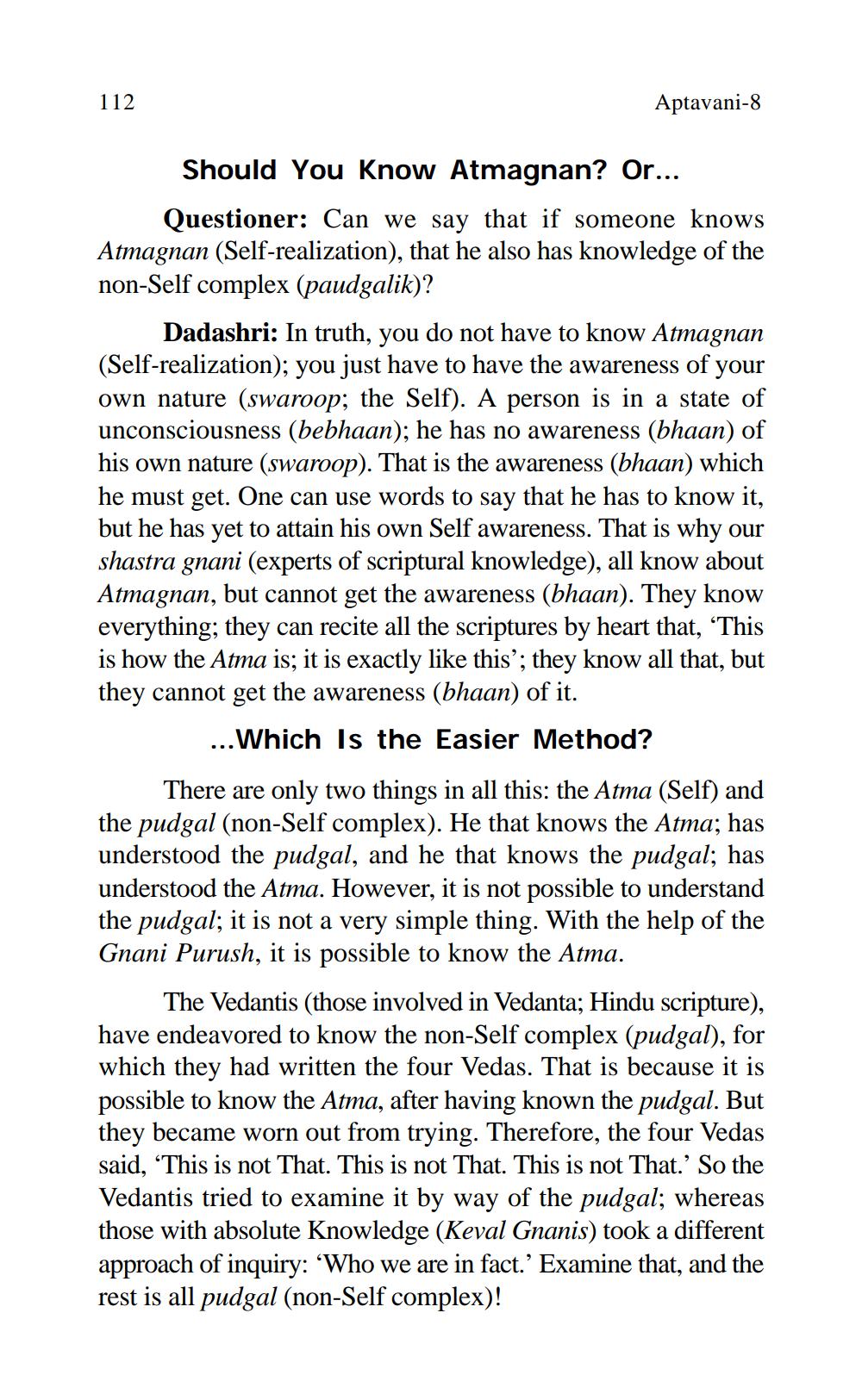________________
112
Aptavani-8
Should You Know Atmagnan? Or...
Questioner: Can we say that if someone knows Atmagnan (Self-realization), that he also has knowledge of the non-Self complex (paudgalik)?
Dadashri: In truth, you do not have to know Atmagnan (Self-realization); you just have to have the awareness of your own nature (swaroop; the Self). A person is in a state of unconsciousness (bebhaan); he has no awareness (bhaan) of his own nature (swaroop). That is the awareness (bhaan) which he must get. One can use words to say that he has to know it, but he has yet to attain his own Self awareness. That is why our shastra gnani (experts of scriptural knowledge), all know about Atmagnan, but cannot get the awareness (bhaan). They know everything; they can recite all the scriptures by heart that, “This is how the Atma is; it is exactly like this'; they know all that, but they cannot get the awareness (bhaan) of it.
... Which is the Easier Method?
There are only two things in all this: the Atma (Self) and the pudgal (non-Self complex). He that knows the Atma; has understood the pudgal, and he that knows the pudgal; has understood the Atma. However, it is not possible to understand the pudgal; it is not a very simple thing. With the help of the Gnani Purush, it is possible to know the Atma.
The Vedantis (those involved in Vedanta; Hindu scripture), have endeavored to know the non-Self complex (pudgal), for which they had written the four Vedas. That is because it is possible to know the Atma, after having known the pudgal. But they became worn out from trying. Therefore, the four Vedas said, “This is not That. This is not That. This is not That.' So the Vedantis tried to examine it by way of the pudgal; whereas those with absolute Knowledge (Keval Gnanis) took a different approach of inquiry: ‘Who we are in fact.' Examine that, and the rest is all pudgal (non-Self complex)!




